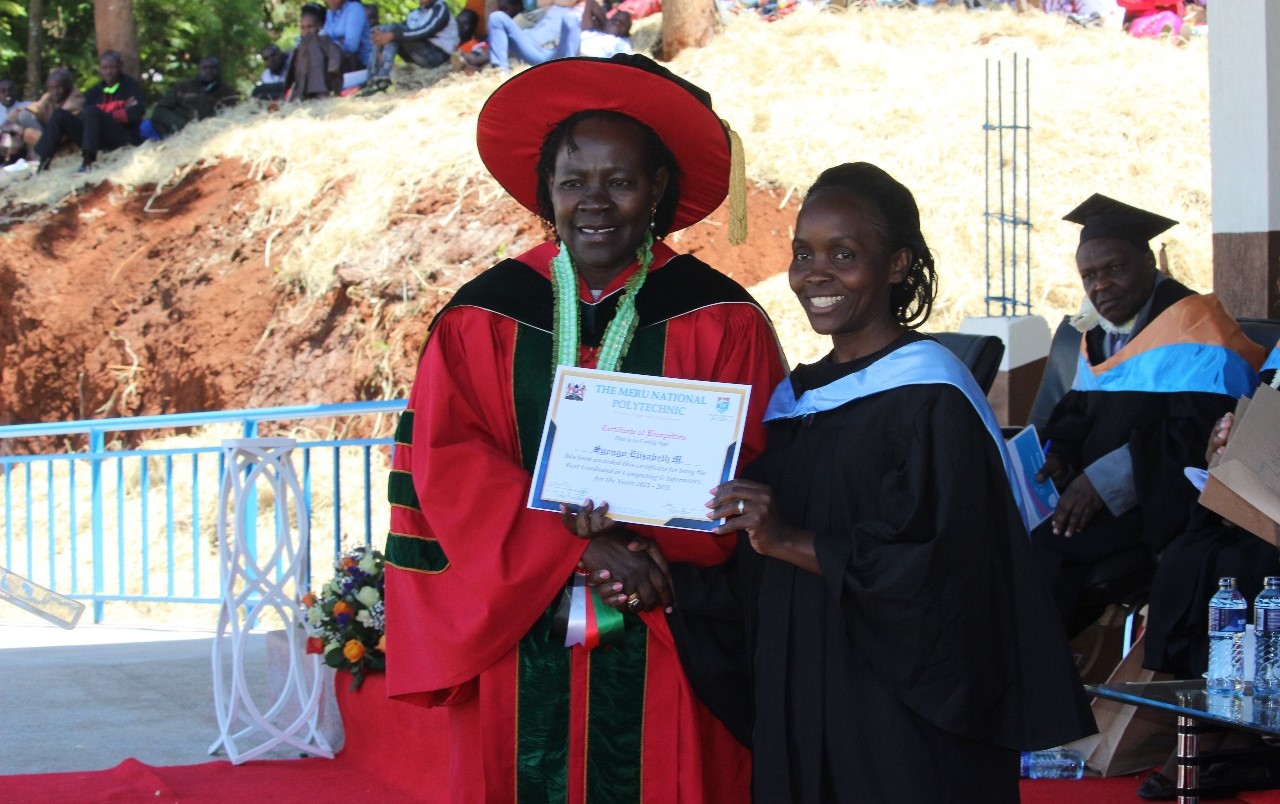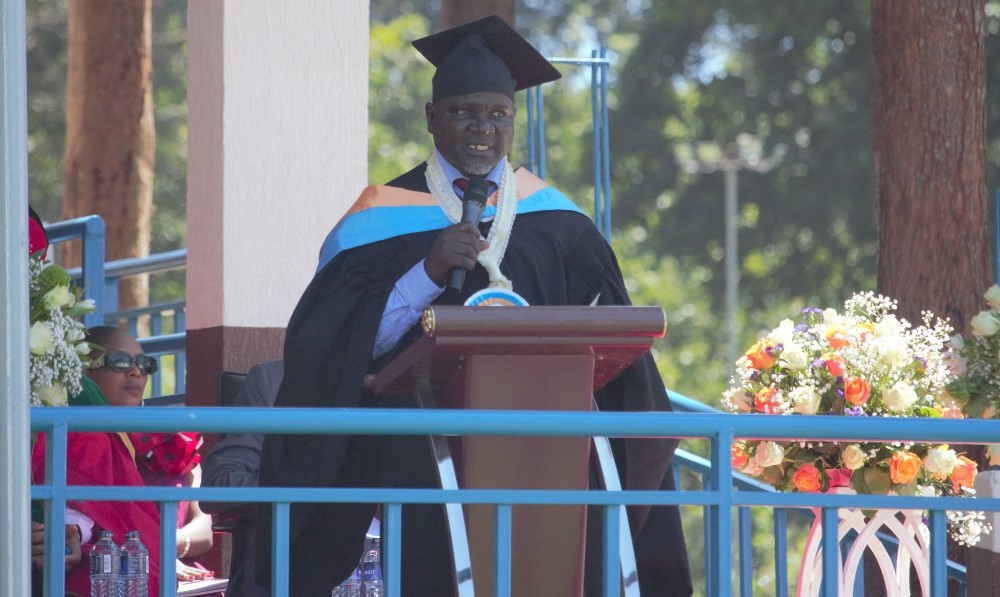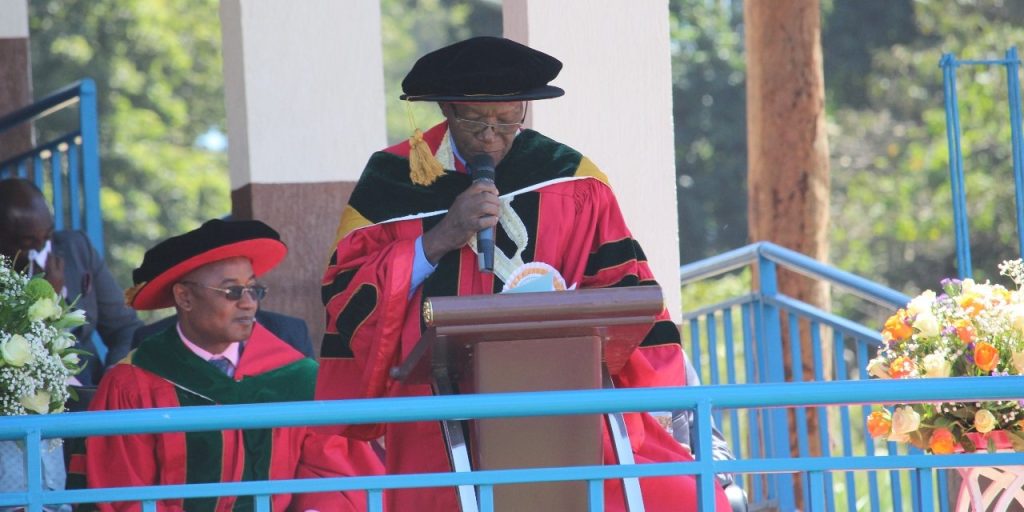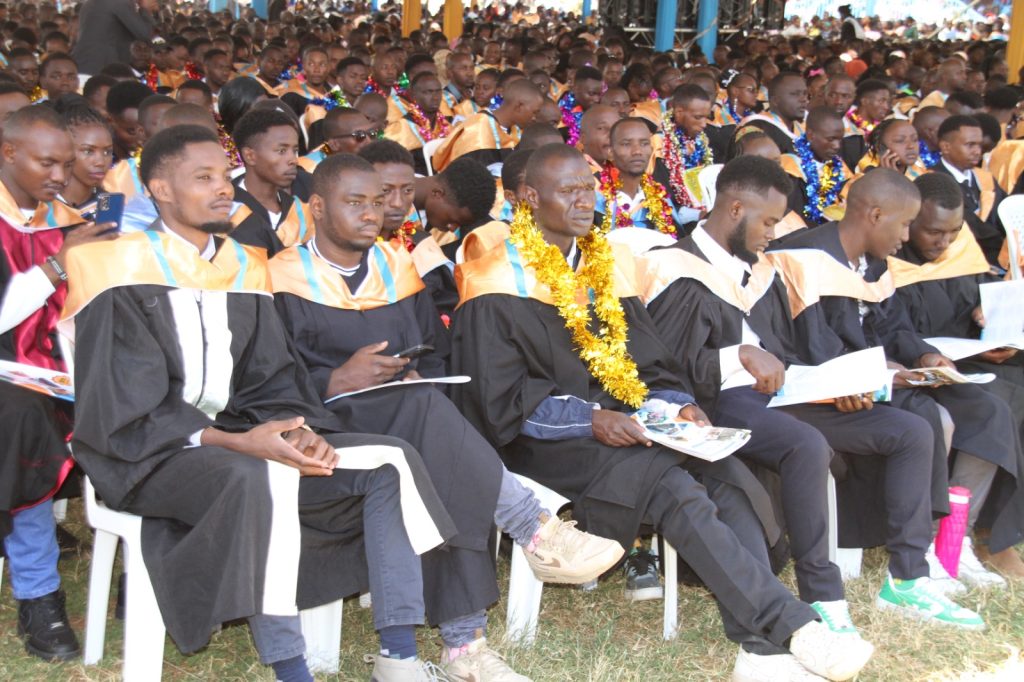PS Muoria urges TVETs to fully adopt Dual Training Model to bridge the skills gap

By Haron Mugambi
The State Department for Technical, Vocational Education and Training (TVET) at the Ministry of Education is intensifying its campaign to adopt the Dual Training System (DTS) within the TVET curriculum.
This move aims to address youth unemployment and bridge the skills gap. The Dual Training Model, a structured framework that fosters collaboration between companies and TVET institutions, significantly enhances the skills development of Kenyan youth.
Speaking at a graduation ceremony held at Meru National Polytechnic, Dr. Esther Thaara Muoria, Principal Secretary of the State Department for Technical and Vocational Training (SD-TVET), emphasized the importance of teaming up with the private sector. By doing so, TVETs can hasten the realization of dual training.
Dr. Muoria highlighted that this adoption aligns with the Competency-Based Education and Training (CBET) module, emphasizing practical and industrial exposure.
“The German Model of training will ensure our youths are well trained and skilled. Germany’s success lies in impacting the lives of its youth through training and skilling.” Dr. Muoria stated,
Embracing the dual training model in TVETs will contribute to Kenya’s industrialization target. According to Dr Muoria competent and skilled youths attract investors, driving economic growth.
She argued that equipping the youth with practical knowledge from industries alongside classroom theories, will help in eliminating youth unemployment.
“My work is to ensure our youths are skilled and ready to contribute to our nation’s progress.” Mworia said.
Additionally, the PS called on Kenyans in the informal sector to register with TVETs so as to get assessed and issued with certificates in their various areas of skill noting that this will present them with an opportunity to access Government tenders, employment both locally, regionally and globally.
Meru National Polytechnic Principal Mutembei Kigige noted that the institution has adopted the Recognition of Prior Learning (RPL) initiative, which acknowledges the diverse backgrounds of learners and enables them to acquire a formal qualification that matches their knowledge and skills.
According to Mr Kigige, the RPL model has broken down barriers in education, enhancing employability, mobility, lifelong learning, and social inclusion while reducing the time and costs associated with obtaining qualifications.
“The RPL model motivates learners to engage more deeply with their education, knowing that their previous efforts are acknowledged,” he said.

Meru polytechnic’s adoption of RPL is part of its commitment to providing high-quality education and training that meets national and international standards. The institution has recently been accredited as a Qualification Awarding Institution (QAI) by the government, a testament to its dedication to excellence.
In addition, the polytechnic now has over 47 Competency-Based Education and Training (CBET) curricula approved by the Technical and Vocational Education and Training Authority (TVETA).
This underscores its commitment to ensuring that its programs are relevant and responsive to the dynamic needs of the job market.

Chairperson of the Meru National Polytechnic Council, Dr. Anthony Njagi, emphasized the importance of strong industry partnerships in providing students with valuable internships, apprenticeships, and real-world project experiences.
“We ensure that our graduates are not only knowledgeable but also job-ready and adaptable to the ever-changing demands of the workforce,” he emphasized.

The polytechnic’s recognition as a QAI and its adoption of RPL are significant milestones in its pursuit of excellence in education and training.
The institution’s commitment to providing high-quality education and training will enable learners to acquire relevant skills that meet the needs of the job market, ultimately contributing to Kenya’s economic growth and development.

